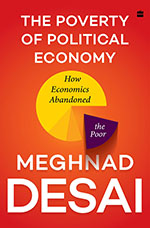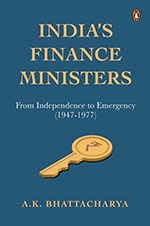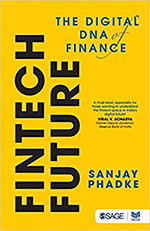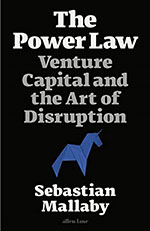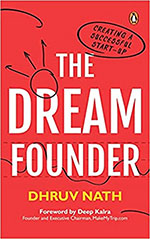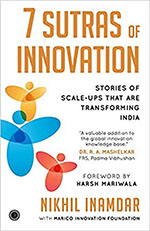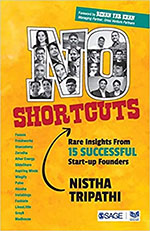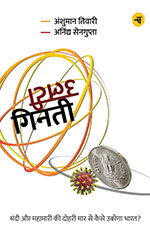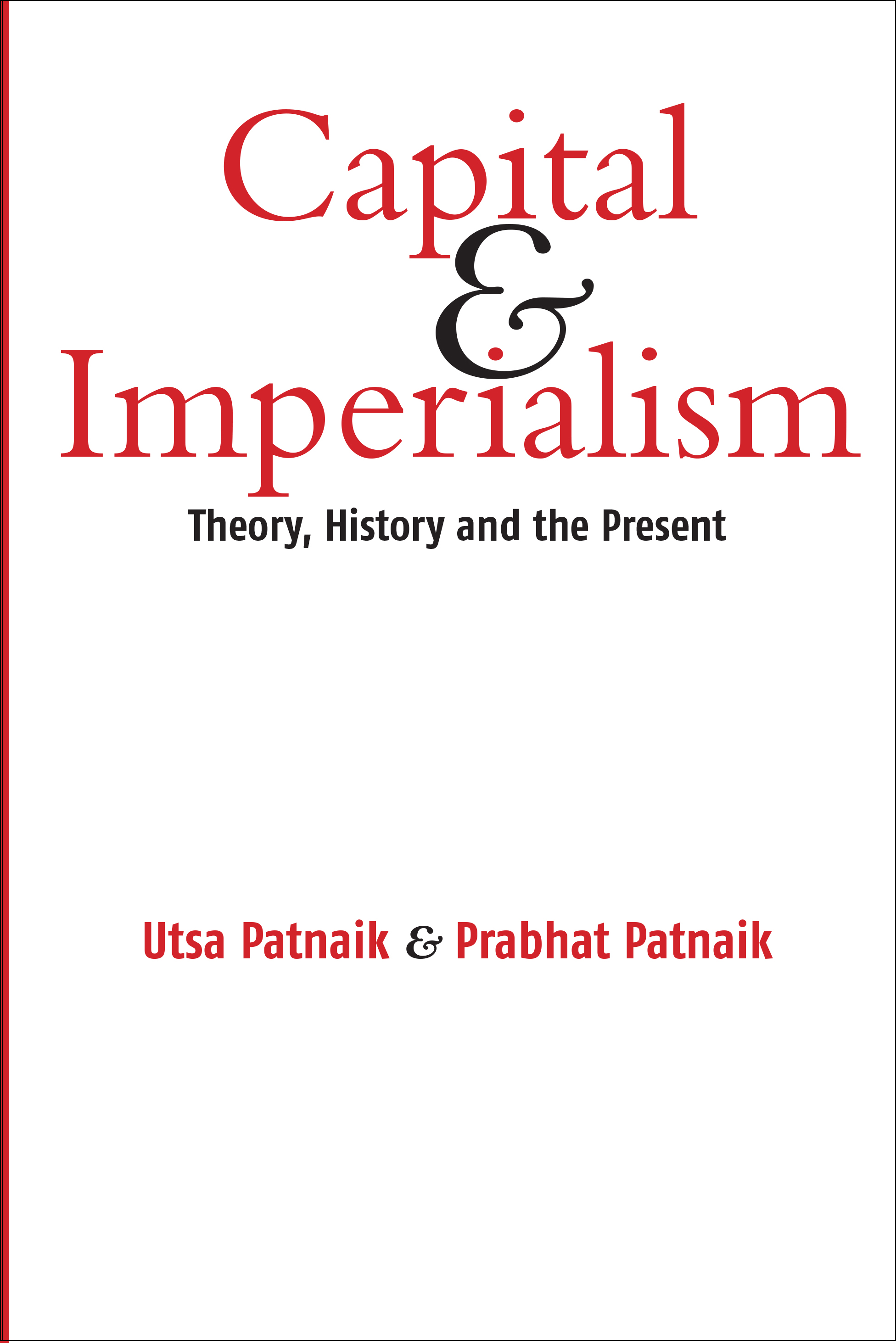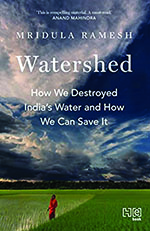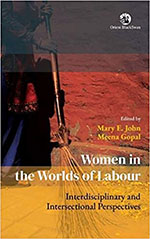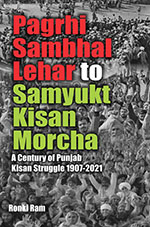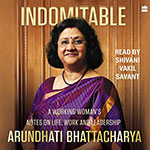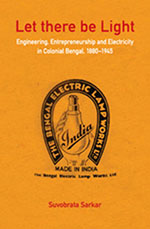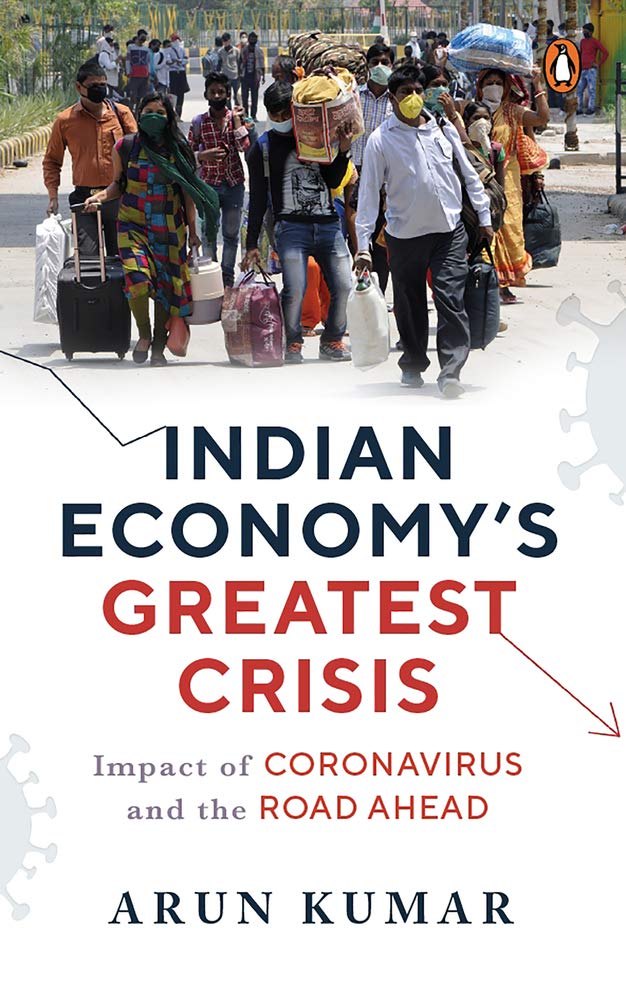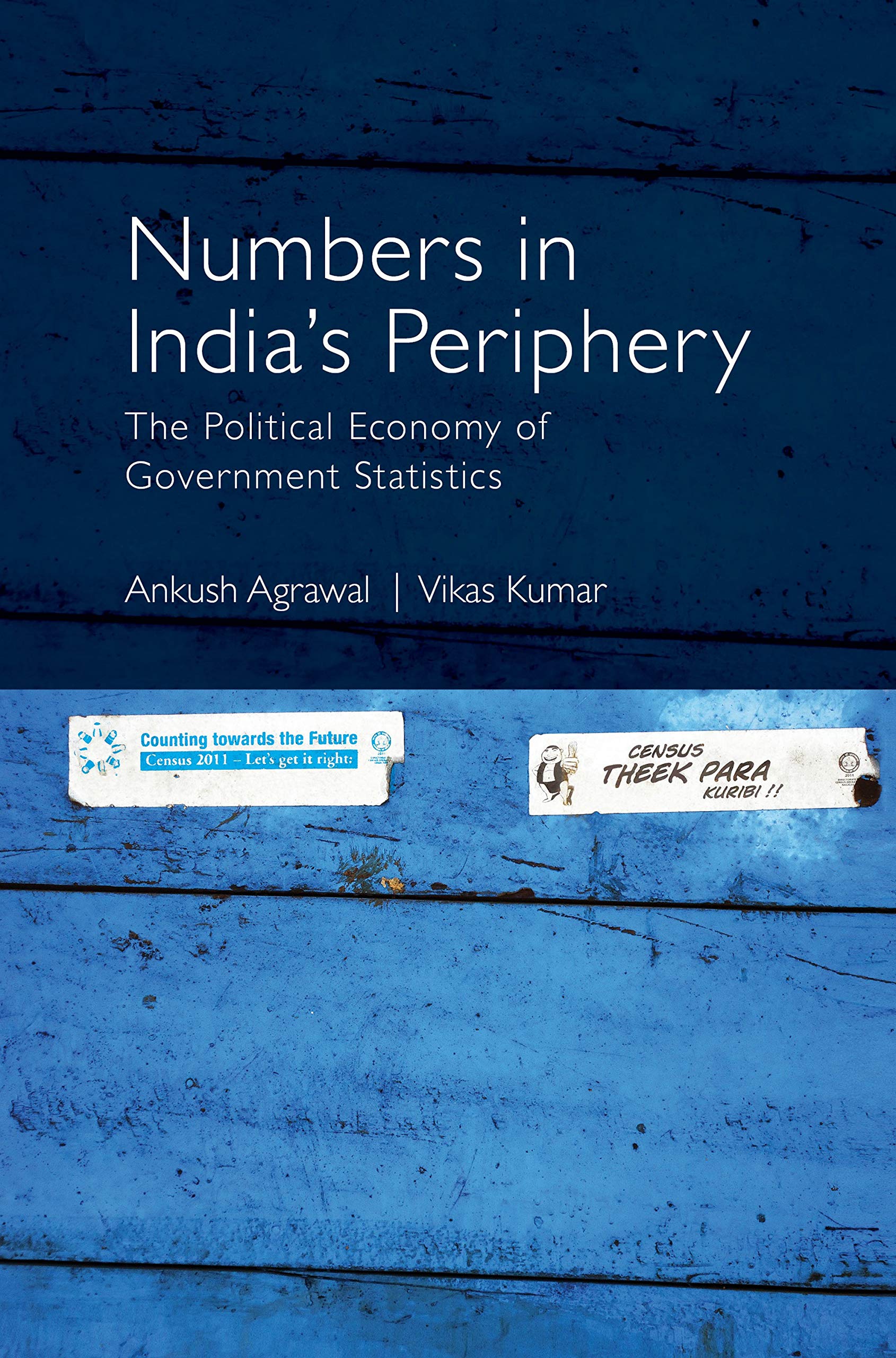Economy
Desai’s introspection in this book is of a deeper significance and for that reason should be of utmost importance to any thinking person within and beyond ideological boundaries. Modi’s India would have to wake up from its euphoric slumber and grapple with the truth that economics is about people and not about growth rates, though the relationship between the two is a complicated one.
Being a highly experienced journalist who covered the Finance Ministry for close to three decades, AKB has also been able to focus on the key events of each tenure which shape our recollections and perceptions of the tenure. This releases the book from the tyranny of the ‘one-damned-thing-after-another’ school of history.
Eshwar S Prasad in his book The Future of Money gives us the tools to grasp how money will come to be used and viewed in the years to come, and explains in detail the social, political and economic ramifications it will have. He does this while harnessing multiple case studies of countries that have proved to be early leaders in adopting the Central Bank Digital Currency (CBDC) to support his claims.
The financial system across the world is at a cusp of another major transformation due to innovations of information technology called fintech and the spread of Internet. In his book Fintech Future, Sanjay Phadke has very elaborately and logically explained the changes that are brought about by the fintech revolution in different parts of the world.
Recent headlines on global internet companies have been far from positive. Internet technology companies have been accused of a long list of excesses with immesuarble harm to their users and society at large. These accusations include outright fraud, issues of privacy, censorship, platforming hate speech, snooping on activists by governments, the weakening of democratic institutions, the spread of manufactured fake news, and throttling of market competition.
The Indian start-up ecosystem is known for its cutthroat competition. With an increasing number of start-ups entering the market, the level of competition has become extremely fierce. It is not just about having a great idea, but also about executing it well, and that too in a crowded market. Entrepreneurs are constantly facing the challenge of standing out from the competition, and it can be difficult to attract the necessary investment and talent to grow their business. Additionally, the Indian market is known for its price sensitivity, which can make it hard for start-ups to build a sustainable business model.
At a time when India’s start-up scene is thriving and its founders are making headlines for their tenacity and inventiveness, this book, an engaging result of the ‘bearded professor’ generously spilling the beans on his decades of expertise, is a good addition to the literature for those of us who are interested in the nitty-gritty details of running a company.The author starts with the concept of a ‘Dream Founder’, taking us through real life stories of Instamojo and ‘iDream’, the latter a start-up providing educational solutions to rural India.
This winter when I came across an appeal for donation of woollens and other material from an NGO on an online platform, instead of scrolling down listlessly, I was quick to devise a plan to source these from my locality and deliver them to their centre. The trigger behind the action came from Nikhil Inamdar’s powerful narration of the organization’s backstory that created an understanding of how small steps can lead to a big impact for communities at large, in ways which we clearly are unaware of and perhaps too immersed in our urbane, rushed lives to care for.
Right off the bat, what makes Nistha Tripathi’s book stand out among others on entrepreneurial journeys is its sincerity. Through its 300-odd pages, and the conversations with 15 exceptional entrepreneurs, Tripathi manages to cull some remarkably perceptive observations about thinking like an entrepreneur and acting upon impulse and rational thought alike to create products and services that carry the stamp of extraordinary minds, be they ultimately successful or not.
Economic growth and climate protection are mutually exclusive, which is why Capitalism has no future, argues business journalist Ulrike Herrmann in her new book. At the same time, she tries not to fundamentally badmouth capitalism.How does Capitalism work? Ulrike Herrmann has been dealing with this complex question for years. In her books, she has analysed how the capitalist system came into being, what its weaknesses are and why it is prone to crises.
The global crisis witnessed during the COVID pandemic was terrifying in many ways. Not a single bullet was fired but more people died than in the two World Wars. There were no earthquakes or floods but crores lost their livelihood and were forced to migrate. At the time, many believed that the world would never be the same place again but with COVID-19 virus losing its virulence with each passing day.
The authors are emeritus professors of the Centre for Economic Studies and Planning, School of Social Sciences, Jawaharlal Nehru University. Both secured their doctorates in economics from Oxford University, UK. Utsa’s main areas of research interest are the problems of transition from agriculture and peasant predominant societies in a historical context, at present in relation to India, and questions relating to food security and poverty. She has authored several books including Peasant Class Differentiation: A Study in Method (1987), The Long Transition (1999), and The Republic of Hunger and Other Essays (2007).
Thomas Piketty requires very little introduction. He is a Professor of Economics at the School for Advanced Studies in the Social Sciences (French: École des hautes études en sciences sociales: EHESS), Associate Chair at the Paris School of Economics and Centennial Professor of Economics in the International Inequalities Institute at the London School of Economics.
Mridula Ramesh’s compelling work traces the trajectory of India’s water over 4000 years to highlight the grave crisis India is facing today. Global warming is a tragic reality and it is being predicted that by 2030 India will fail to meet half its water demand. As the book’s blurb points out, water availability per person in India has been decreasing for decades, leaving parts of the country in a cruel ‘Day Zero’ situation, shuttering factories and pushing farmers over the brink.
The question of women’s labour has been central to most women’s studies classrooms across the world.The book edited by Mary EJohn and Meena Gopal is pathbreaking because it takes the question of women’s labour out of the confines of traditional women’s studies by adopting an interdisciplinary and intersectional perspective. The book opens with a section that is almost akin to a masterclass on the issues of women and labour in India in specific, accompanied by a very exhaustive discussion of the shifting theoretical paradigms, scholarly debates and literature review.
The book under review focuses on the recent farmers movement that lasted for one and half years and ended only when the Union Government withdrew the three farm laws against which the farmers had put up a peaceful resistance, ensconced on the borders of the national capital territory of Delhi. The movement led the farmers’ unions to form their own party (Samyukt Kisan Morcha) in Punjab and enter into the electoral arena.
Arundhati Bhattacharya’s memoir has a literary flavour, mixing personal elements with the professional admirably. But it is distinctive in the way her experiences have been articulated from the perspective of a ‘working woman’. And this feat she accomplishes with elan, making her reflections a readable treat and compelling to empathize with.To begin with, it is a story of a girl growing up at Bhilai and Bokaro and then in Kolkata for higher studies before joining the wider world of professional banking.
The title of Sarkar’s book derived from this legendary quote in text Genesis of the Bible in a way exemplifies Suvobrata Sarkar’s fine work. Sarkar’s work illuminates the complex process of technology adoption and transfer in Bengal and its contentious equation with the rebirth of Bengali entrepreneurship after the setbacks of the 1840s, a trend which was witnessed in its nebulous stage in the closing years of the 19th century and achieved its full bloom during the Swadeshi period.
The book under review suggests ways out of what is possibly one of the worst crises of the 21st century. The author compares the situation to a war and also finds similarities with the 2007-08 economic crisis. He attempts to address the fallout of the pandemic, its historical context and puts forward the emerging challenges and potential solutions.The book begins with the science behind viruses and gives a historical background to pandemics. This part is very well covered and readers will find it very informative. The later chapters delve into the government’s response. The author critically evaluates the measures undertaken by governments and their prognosis of the situation…
The poor quality of official statistics is the basis for many criticisms of the Government these days. Whether it is the handling of the COVID pandemic, the state of the economy, or the quality of life of people in society, a common refrain of all critics is that of the poor and declining quality of Government data. Ironically, this situation has come about in large measure because of the success of official statisticians in persuading policy makers, commentators, and civil society activists to use data and empirical arguments in their discussions…

